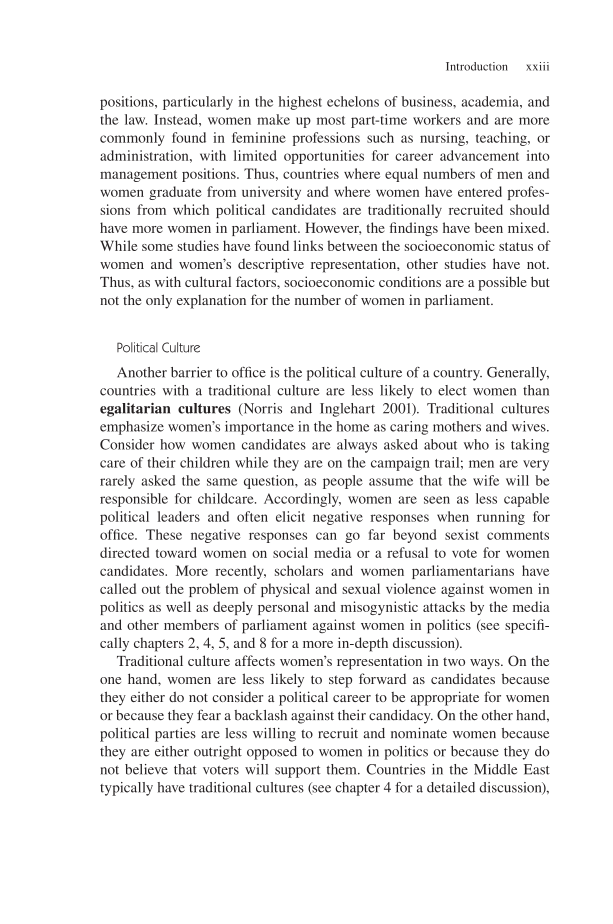Introduction xxiii positions, particularly in the highest echelons of business, academia, and the law. Instead, women make up most part-time workers and are more commonly found in feminine professions such as nursing, teaching, or administration, with limited opportunities for career advancement into management positions. Thus, countries where equal numbers of men and women graduate from university and where women have entered profes- sions from which political candidates are traditionally recruited should have more women in parliament. However, the findings have been mixed. While some studies have found links between the socioeconomic status of women and women’s descriptive representation, other studies have not. Thus, as with cultural factors, socioeconomic conditions are a possible but not the only explanation for the number of women in parliament. Political Culture Another barrier to office is the political culture of a country. Generally, countries with a traditional culture are less likely to elect women than egalitarian cultures (Norris and Inglehart 2001). Traditional cultures emphasize women’s importance in the home as caring mothers and wives. Consider how women candidates are always asked about who is taking care of their children while they are on the campaign trail men are very rarely asked the same question, as people assume that the wife will be responsible for childcare. Accordingly, women are seen as less capable political leaders and often elicit negative responses when running for office. These negative responses can go far beyond sexist comments directed toward women on social media or a refusal to vote for women candidates. More recently, scholars and women parliamentarians have called out the problem of physical and sexual violence against women in politics as well as deeply personal and misogynistic attacks by the media and other members of parliament against women in politics (see specifi- cally chapters 2, 4, 5, and 8 for a more in-depth discussion). Traditional culture affects women’s representation in two ways. On the one hand, women are less likely to step forward as candidates because they either do not consider a political career to be appropriate for women or because they fear a backlash against their candidacy. On the other hand, political parties are less willing to recruit and nominate women because they are either outright opposed to women in politics or because they do not believe that voters will support them. Countries in the Middle East typically have traditional cultures (see chapter 4 for a detailed discussion),
Document Details My Account Print multiple pages
Print
You have printed 0 times in the last 24 hours.
Your print count will reset on at .
You may print 0 more time(s) before then.
You may print a maximum of 0 pages at a time.





































































































































































































































































































































